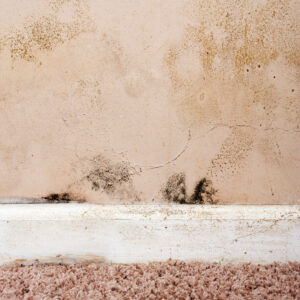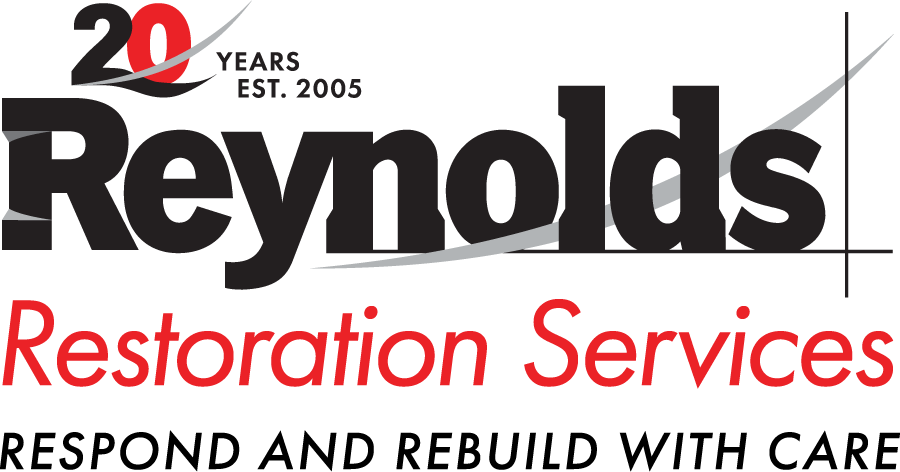 Basements are notorious for being damp and dark places that are prone to mold growth. Once mold takes hold, it can be difficult to remove, not to mention that it poses a health hazard to you and your family. The good news is preventing mold growth in your basement is actually quite simple if you take the right steps.
Basements are notorious for being damp and dark places that are prone to mold growth. Once mold takes hold, it can be difficult to remove, not to mention that it poses a health hazard to you and your family. The good news is preventing mold growth in your basement is actually quite simple if you take the right steps.
Let’s take a look at the top tips to prevent basement mold and what to do if you already have mold in your basement.
Tips to Prevent Basement Mold
Preventing mold growth in your basement can be challenging because of its unique conditions. Basements, due to their positioning, humidity levels, usage, and some external influences, are prone to mold infestation.
Maintaining a basement that is free from mold and inhibiting its spread is achievable, even though basements are susceptible to various sources of mold infiltration. Here are some helpful tips to get you on a path to a mold-free basement:
Control Moisture
The first tip to prevent mold in your basement is to manage the moisture levels. Immediately address and fix any leaks or water damage, as these can rapidly result in mold development. Inspect your pipes to confirm they are not leaking. If you have a sump pump, it’s crucial to ascertain that it is functioning appropriately. Excess moisture is the #1 reason mold develops in a basement.
Create Good Drainage
Another way to prevent basement mold is to make sure there is good drainage around your home’s foundation. Poor drainage can lead to water seeping into your basement, which creates the perfect environment for mold to grow. Make sure your gutters are working correctly and direct the flow of water away from your property.
Keep It Clean
A clean basement is far less likely to harbor mold than a dirty one. Regularly vacuum, sweep, and mop your basement to keep it free from dust, debris, and organic matter. Pay special attention to any soft or porous surfaces such as carpets, upholstery, or curtains.
Watch Humidity Levels
Monitoring humidity levels in your basement is crucial to mold prevention. Ideally, your basement’s humidity level should be between 30-50%. You can purchase a humidity sensor at your local hardware store or online to keep tabs on levels.
High humidity is optimal for mold spores to grow and spread. If the humidity in your basement exceeds 60%, consider getting a dehumidifier. Keeping the humidity level low will help prevent mold growth and also make your basement feel more comfortable.
Humidity levels can also be controlled through proper ventilation. Make sure to open any windows or doors regularly and consider installing a fan system.
Use Mold-Resistant Materials
When renovating or finishing your basement, consider using mold-resistant materials. These materials are designed to resist mold growth and are a worthwhile investment in preventing future mold issues. Look for mold-resistant drywall, paints, and insulation.
Keep Plants Out of the Basement
Plants love moisture and so does mold. To prevent mold from growing, keep plants away from the basement and any high-humidity areas.
Preventing basement mold is, without a doubt, simpler than dealing with a mold problem in the future. By controlling moisture, creating good drainage, maintaining cleanliness, monitoring humidity levels, and using mold-resistant materials, you can keep your basement dry, healthy, and mold-free for years to come.
If you do encounter mold growth, however, don’t hesitate to call in a professional to assess and address the issue immediately. By taking preventive measures and acting promptly, you can rest easy knowing that your basement will remain a safe and comfortable space for you and your loved ones.
What to Do If You Discover Mold in Your Basement
If you discover mold in your basement, it’s important to act fast. Begin by locating the source of the moisture that is causing the mold growth and take steps to remedy it—this could include any combination of adding ventilation, air sealing cracks, installing an exhaust fan or dehumidifier, and so on.
Once you have identified and addressed the root cause of the moisture, you can then move on to physically removing the mold. This process is best handled by a professional, as it requires specialized tools and knowledge. A certified remediation expert will be able to remove the mold safely and thoroughly, eliminating any potential health risks related to inhalation or contact with it.
Removing mold through DIY methods can actually make the problem worse. If you try to eliminate mold on your own, you could agitate it, leading to its spread to other parts of your home. Once it’s unsettled and airborne, mold has the potential to infect an entire house in just a matter of days.
Mold Remediation Services from Reynolds Restoration
Reynolds Restoration offers comprehensive mold remediation services to homeowners and businesses throughout the mid-Atlantic region including Harrisburg, Philadephia, Baltimore, and the surrounding regions.
We provide professional and reliable help for any size job, from minor surface spots to large-scale mold infestations. Our team of certified experts will work to identify the source of your moisture problem before removing all traces of the mold safely and completely.
With our experienced team and advanced equipment, we can provide successful mold remediation with minimal disruption to your home or business. Contact us today using our form or call (888) 277-8280 so we can help you get rid of pesky mold.

President of Reynolds Restoration Services. Over 20 years of experience in the emergency restoration industry.

